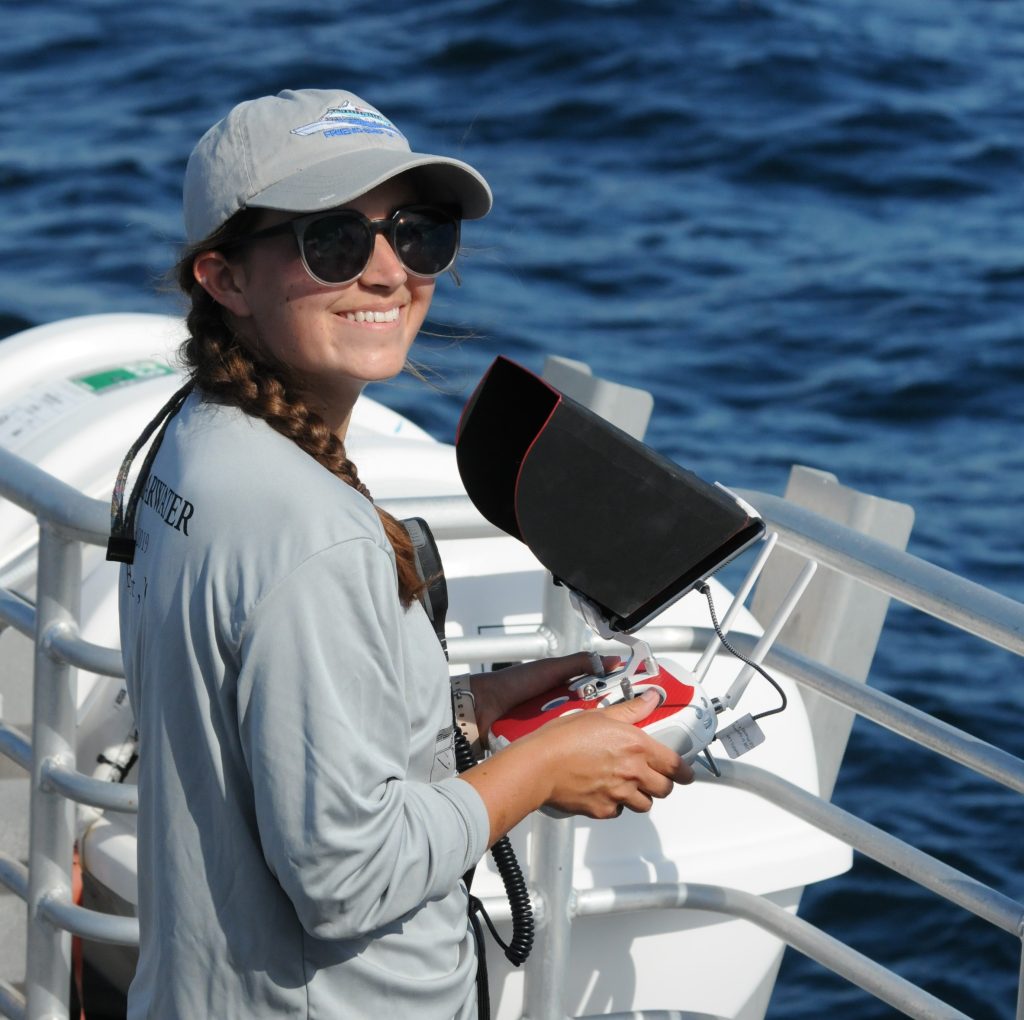
Pilot whales are cosmopolitan, occurring in all the world’s tropical and temperate oceans. These highly social whales eat a great variety of prey in these varied oceans while trying to stay together with their lifelong, family-based social groups. To do this, they must coordinate their behavior at the surface and throughout their deep foraging dives.
Hear about current research on pilot whales in North Carolina and around the world as we explore the lives of these amazingly flexible deep divers, the strategies that make them successful in so many places, and how they coordinate their groups throughout their daily movements.
Join the Science Cafe in-person or watch the livestream on YouTube.
About our expert
Anne Harshbarger is a PhD candidate in Marine Science & Conservation in the Nicholas School of the Environment at Duke University. Anne is broadly interested in collective movement ecology, group decision-making, and other social processes that could impact cetaceans’ resilience to conservation threats. Her dissertation research focuses on group coordination and individuals’ influence over group decision-making during foraging dives in groups of short-finned and long-finned pilot whales. Using digital acoustic tags (DTAGs) and unoccupied aircraft systems (UAS, or drones), she identifies factors that influence movement decisions whales make at several points throughout a dive – including horizontal movement at the surface, individual paths during foraging, and reunification with group members during ascent – allowing social groups to maintain cohesion over time.
Anne completed a B.S. in Environmental Sciences and Biology at Duke. Her undergraduate research with the Duke Marine Robotics and Remote Sensing Lab and the NOAA Hawaiian Monk Seal Research Program focused on the behavioral response of wildlife to UAS, with the goal of developing species-specific best practices for the use of UAS as a tool for conservation research.
About the Special Exhibition
Blue whales are BIG! How big are they? They can grow up to 110 feet long, weigh up to 400,000 pounds, and have a heart the size of a small car. Even their appetites are big: they can eat 16 tons of tiny krill every day. And their voices? Blue whale songs can travel 1,000 miles underwater.
Dive into the details behind their mind-blowing biology and discover how these mammals became and remain our planet’s largest animals ever.
Blue Whales is open now through January 11. Learn more and buy tickets today!
Grab a bite from the Daily Planet Café and join host Chris Smith for our monthly Science Café. Gather with other curious minds at this after-hours event for an informal presentation and conversation about current science topics with guest experts. The Daily Planet Café is open 5–8pm with a full menu during the Science Café.


